Summary of the Episode
Dr. Richard DeClue, a professor of theology, discusses the Communio school of thought and the differences between the Communio and Concilium journals. He explains that the Communio school focuses on investigating the sources of theology, such as scripture and the church fathers, while the Concilium school adopts modern philosophies. Dr. DeClue also discusses the development of doctrine and the role of the Pope in the church, emphasizing that the Pope is not an absolute monarch but a servant of the servants of God. He explains the concept of synodality and its historical significance in the early church. The conversation explores the concept of synodality in the Catholic Church and the nature of the beatific vision. It delves into the role of synods and the importance of bishops listening to the people of God before making decisions. It also discusses the confusion surrounding the term 'synodality' and the misconception that it implies a democratic process. The conversation then shifts to the nature and grace debate, examining the question of whether the beatific vision is a natural desire or solely a supernatural gift. The discussion highlights the complexity of the topic and the need for charity and understanding in theological debates.
Takeaways
The Communio school focuses on investigating the sources of theology, such as scripture and the church fathers.
The Concilium school adopts modern philosophies in their work.
The Pope is not an absolute monarch but a servant of the servants of God.
Synodality is the collaboration between bishops at the local, regional, and universal levels.
The Synod of Bishops is an advisory body to the Pope. Synodality emphasizes the importance of bishops listening to the people of God before making decisions.
The term 'synodality' does not imply a democratic process in the Catholic Church.
The nature and grace debate centers around whether the beatific vision is a natural desire or solely a supernatural gift.
The debate between nature and grace is complex and requires charity and understanding.
The Word on Fire Institute and the Evangelization and Culture Journal are valuable resources for theological discussions.
Who is Richard DeClue, S.Th.D.?
Dr. Richard DeClue is a systematic theologian and Professor of Theology at the Word on Fire Institute. He earned degrees in theology at Belmont Abbey College (BA) and The Catholic University of America (STB, STL, and SThD). Both his STL thesis and doctoral dissertation focused on the thought of Pope Benedict XVI, particularly on his ecclesiology and theology of divine revelation, respectively. Additionally, he has published articles on Benedict XVI in Communio, Nova et Vetera, and Evangelization & Culture.
Keywords
Communio, Concilium, theology, sources, philosophy, development of doctrine, Pope, synodality, synodality, Catholic Church, beatific vision, nature and grace, theological debates


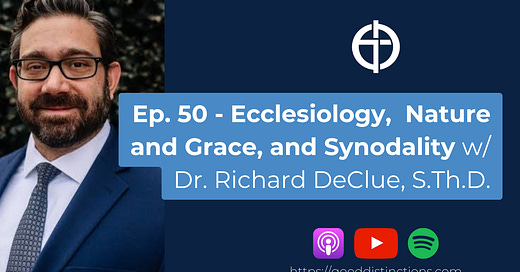

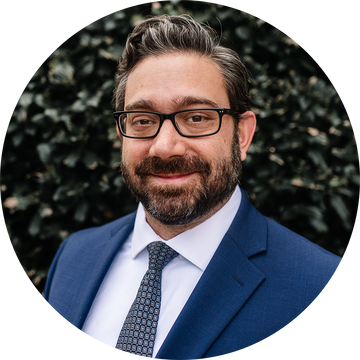


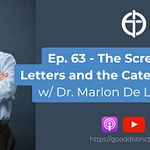



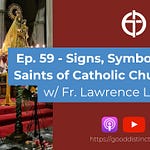
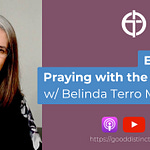

Share this post